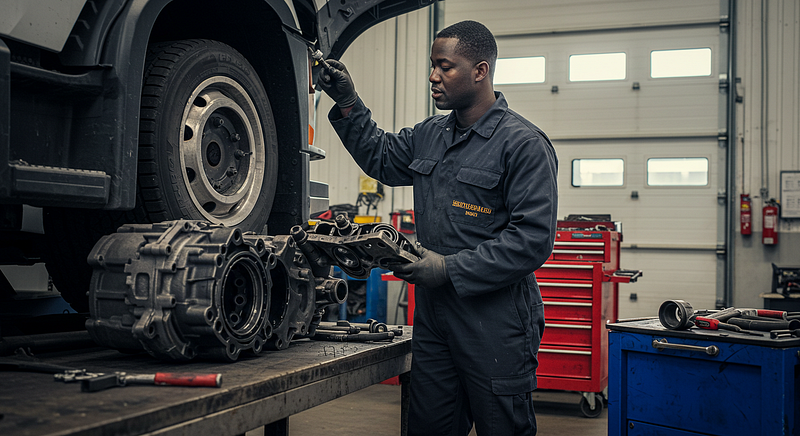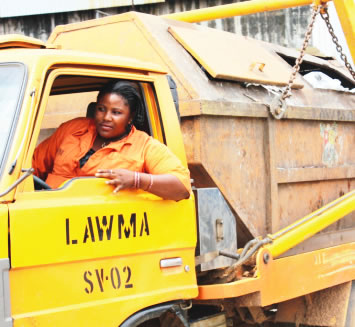Deadly Deals: The Role of Fake Truck Spare Parts in Safety and Profitability - A Nigerian Perspective

In Nigeria’s booming haulage and logistics industry, the availability of spare parts is as essential as fuel. But beneath the surface of this vital sector lies a dangerous threat silently crippling businesses and endangering lives: fake truck spare parts.
For truck owners, fleet managers, and investors, the use of counterfeit parts may seem like a cost-saving measure — but the hidden costs far outweigh the temporary gain. In fact, fake parts are one of the leading causes of road accidents, mechanical failures, and financial losses in the Nigerian trucking industry.
Understanding the Fake Spare Parts Menace
Fake or substandard spare parts are unauthorized copies of genuine vehicle components, often made with low-quality materials. They look like the real thing, but lack the durability, precision, and safety standards of original parts.
From brake pads and suspension systems to filters, clutches, and engine components — counterfeit versions flood Nigerian markets, especially in major auto parts hubs like Ladipo (Lagos), Aba, and Onitsha.
According to the Standards Organisation of Nigeria (SON), over 60% of imported spare parts in Nigerian markets are substandard or fake.
The Cost of Using Fake Parts
1. Increased Road Accidents and Safety Hazards
Trucks are already high-risk vehicles due to their size and load capacity. Fitting them with fake parts is like arming a ticking time bomb.
- Fake brake pads wear out quickly or fail entirely, leading to runaway trucks and deadly crashes.
- Low-quality tires are more likely to burst, especially under Nigeria’s intense heat and poor road conditions.
- Counterfeit engine components can cause overheating or complete engine failure mid-journey.
The Federal Road Safety Corps (FRSC) attributes a significant percentage of commercial truck accidents to mechanical faults stemming from substandard parts.
2. Reduced Vehicle Lifespan
Trucks are built to endure years of hard work — but only if they are maintained with the right parts. Fake components wear down surrounding systems and reduce the life expectancy of your vehicle. A ₦20,000 “bargain” filter could lead to a ₦2 million engine replacement.
3. Frequent Breakdowns and Downtime
Downtime is the enemy of profit in haulage. Fake parts fail faster, leading to constant repairs, cancelled trips, and disappointed clients. Each day a truck is grounded means lost revenue and operational disruption.
4. Damage to Brand and Business Reputation
For logistics companies or fleet owners, reliability is everything. Repeated delays, cargo losses, or safety incidents caused by mechanical failures can destroy business credibility, leading to lost contracts and future opportunities.
Why Fake Parts Thrive in Nigeria
- High demand, low regulation: The massive demand for parts and poor enforcement make Nigeria a breeding ground for counterfeit products.
- Ignorance or desperation: Many truck owners — especially independent operators — opt for cheaper parts out of necessity or lack of awareness.
- Dishonest vendors: Some spare parts dealers deliberately mislabel or repackage fake goods to sell at premium prices.
How to Avoid Fake Parts and Protect Your Business
1. Buy from Reputable Dealers
Only purchase spare parts from verified and certified distributors. Avoid roadside mechanics or unregulated markets.
2. Use Manufacturer-Approved Parts
Stick to OEM (Original Equipment Manufacturer) parts, or high-quality aftermarket parts from known global brands.
3. Engage Knowledgeable Mechanics
A trained mechanic can often detect counterfeit parts before installation. Build a relationship with professionals who understand the importance of quality.
4. Educate Drivers and Fleet Managers
Drivers and maintenance staff should be trained to spot early warning signs of failing parts and understand the dangers of using substandard replacements.
5. Insist on Quality Over Price
That ₦10,000 “deal” on a vital component may seem like a steal — until it costs you your truck, a client’s goods, or someone’s life.
Government and Industry Responsibility
To truly tackle the fake parts crisis, government agencies like SON, Customs, and FRSC must:
- Enforce stricter import controls
- Crack down on counterfeit rings
- Promote public awareness campaigns
Industry associations and logistics companies must also self-regulate, share information about reliable suppliers, and train stakeholders at all levels.
Final Thoughts: Don’t Gamble With Fake Parts
In the trucking business, your vehicle is your asset. Fitting it with fake spare parts is like building a house on sand — disaster is only a matter of time.
Whether you’re an independent truck owner, a fleet manager, or an investor, prioritizing genuine spare parts is not a luxury — it’s a business necessity. It saves lives, protects your investment, and ensures your truck stays on the road, making money.
Because in haulage, the road to profit begins with safety — and safety starts with the parts you trust.



Comments
Post a Comment